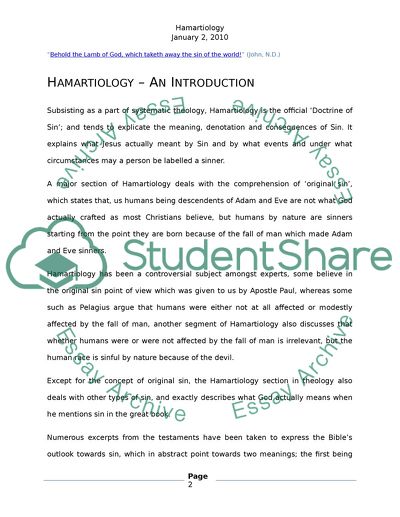Cite this document
(“How does the Bible describe sin ( Hamartiology) Essay”, n.d.)
Retrieved from https://studentshare.org/religion-and-theology/1559863-how-does-the-bible-describe-sin-hamartiology
Retrieved from https://studentshare.org/religion-and-theology/1559863-how-does-the-bible-describe-sin-hamartiology
(How Does the Bible Describe Sin ( Hamartiology) Essay)
https://studentshare.org/religion-and-theology/1559863-how-does-the-bible-describe-sin-hamartiology.
https://studentshare.org/religion-and-theology/1559863-how-does-the-bible-describe-sin-hamartiology.
“How Does the Bible Describe Sin ( Hamartiology) Essay”, n.d. https://studentshare.org/religion-and-theology/1559863-how-does-the-bible-describe-sin-hamartiology.


